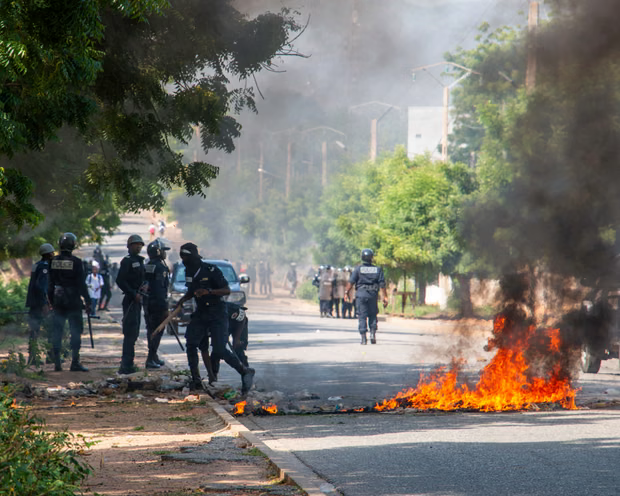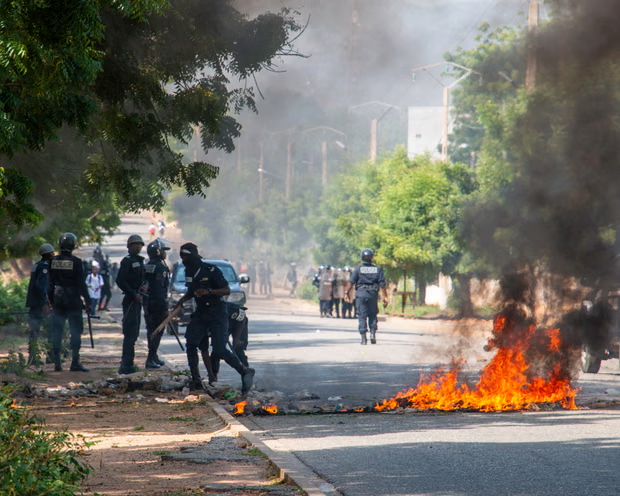At least two people have been killed and dozens arrested across Cameroon as security forces intensify a crackdown on protesters challenging the credibility of the country’s recent presidential election. The unrest comes just days before official results are expected to confirm the re-election of 92-year-old President Paul Biya — a leader who has ruled the Central African nation for over four decades.
Preliminary figures from the electoral body, Elecam, widely circulated in local media, indicate that Biya’s victory is virtually assured. However, this outcome has sparked widespread anger among opposition supporters, who accuse authorities of manipulating the vote to prolong Biya’s already unprecedented rule.

Biya, head of the ruling Cameroon People’s Democratic Movement (CPDM), has been in power since 1982, making him the world’s longest-serving head of state. His administration has faced persistent criticism for authoritarian practices, corruption, and failure to address deep regional inequalities.
Clément Atangana, president of the Constitutional Council, announced that the final results would be released on 27 October. The council has already rejected ten petitions alleging electoral fraud, several filed by opposition parties, a move that many observers say has further eroded public trust in the electoral process.
Issa Tchiroma Bakary, a former Biya ally turned opposition leader of the Cameroon National Salvation Front, declared himself the legitimate winner earlier this week. He claims to have received 54.8% of the vote compared to Biya’s 31.3%, accusing the council of complicity if it upholds what he calls “a massive manipulation of the people’s will.”
“The Cameroonian people will not accept a validation of such widespread falsification,” Tchiroma said, calling on citizens to defend their votes peacefully.
In response, the ruling CPDM dismissed Tchiroma’s self-declared victory as “a grotesque hoax” and reaffirmed its confidence in the official process, saying it was “patiently awaiting the lawful proclamation of results.”
Protests erupted on Wednesday in several cities, including Garoua — Tchiroma’s hometown — where police used tear gas to disperse demonstrators. Two people were killed, among them a teacher hit by stray bullets. In the capital, Yaoundé, and in Maroua in the Far North region, crowds denouncing alleged fraud were quickly broken up by security forces.
In Maroua, a region long neglected by central authorities, anger has turned into despair. Protesters left a handwritten note at the governor’s office, decrying poverty and exclusion:
“We are tired of being the poorest region. We all voted for Issa [Tchiroma], but they want to steal it again. It’s better to join Boko Haram than live under this injustice.”
Authorities have since intensified repression. The Minister of Territorial Administration, Paul Atanga Nji, announced that more than 20 detained protesters would face military tribunals on charges including “incitement to rebellion and insurrection.” He warned that the government “will not tolerate actions threatening national stability.”
Reports from the internet-monitoring group NetBlocks confirmed severe connectivity disruptions in Douala and other cities, though state-owned telecom Camtel attributed the outages to “technical issues” with the WACS undersea cable.
Amid mounting tension, the National Episcopal Conference of Cameroon has appealed for restraint and dialogue. “With God’s help and a collective commitment to peace, our nation can emerge stronger and united in truth,” said Archbishop Andrew Nkea of Bamenda.



